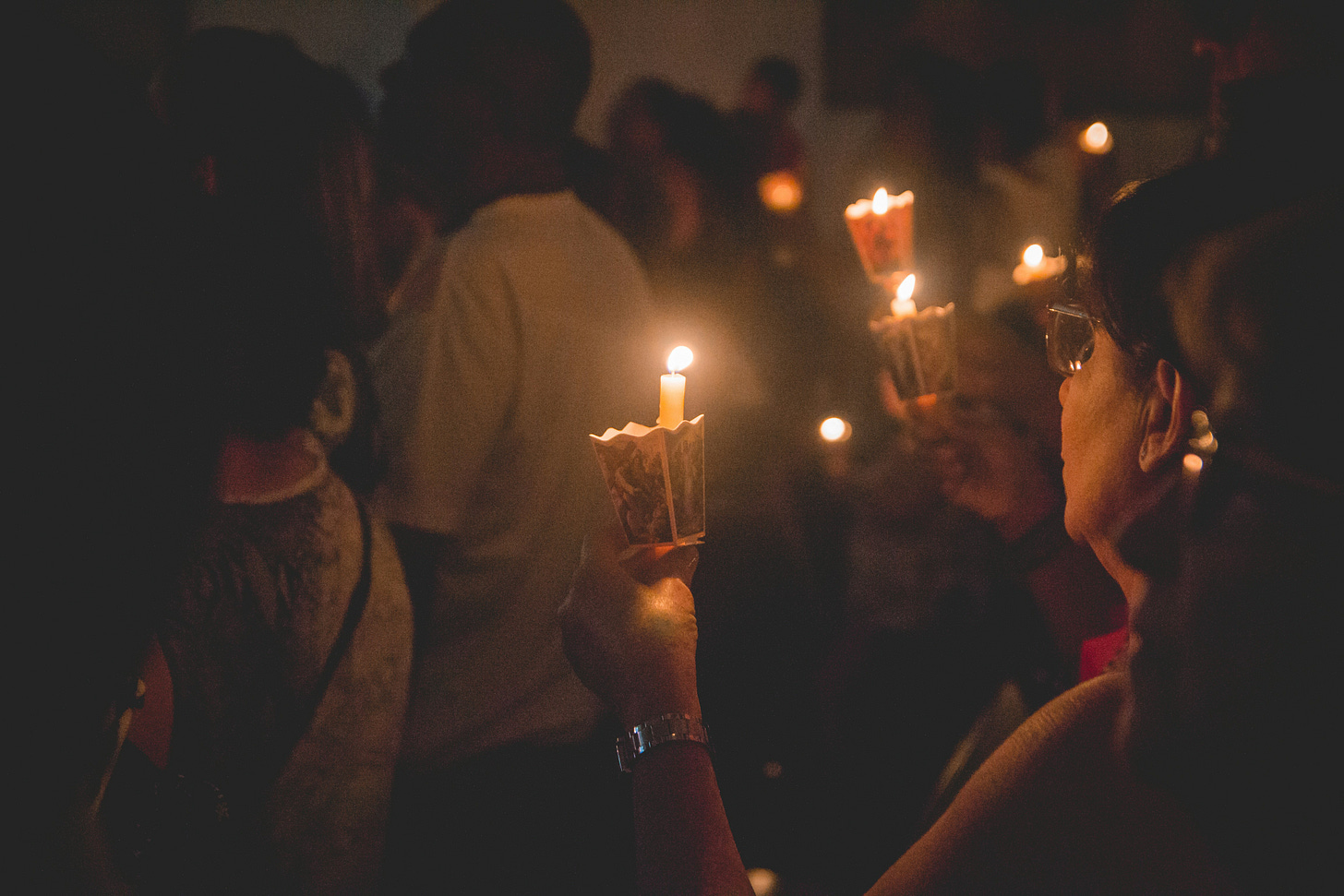A Second Reflection While Reading Eugene Peterson’s Earth & Altar (republished as Where Your Treasure Is)
To clasp the hands in prayer is the beginning of an uprising against the disorder of the world. Karl Barth
I’ve suggested we’re in a bit of a quandary. Scriptures’ yawning drama reveals how we could never consider God mostly disinterested in our systemic troubles (poverty, war, economics, crime, the degradation of our land and water, harm against our children, all the isms that plague us — and yes, each of the things I just failed to mention). It’s blasphemous to think God shrugs the shoulders while the world he loves writhes and trembles.
Yet it’s equally disastrous to project God as a penciled caricature of our own political or cultural commitments. God is not a cosmic placebo quelling our fears while the world burns. Nor is God merely one choice from the philosophical buffet, a resource we employ to bolster whatever opinions we’ll death-grip until hell freezes over. God overwhelms our small, trivial delusions. God is the first truth. God is the solid ground of reality. The God revealed in Jesus Christ does not help us achieve justice or healing (as if these are goods in any way separated from God’s own being). Jesus Christ is all justice, all beauty, all freedom and wholeness.
But how do we reckon with the obvious, disorienting fact that no human ideology, no political movement, can ever capture God’s disruptive, curative intentions for the world? God’s love, unfolded through his commands and persistent posture, compels us to act politically (socially, publicly, for our neighbors). Yet Scripture’s story (the first humans, Israel, Babel, on it goes) and our sordid history (Crusades, many churches capitulation to 1940’s Nationalisms, “Christian” Nationalism now) chasten any final confidence that we’ll get this right.
Even now, as the election looms, political players of all persuasions use matters of conscience as “wedge issues,” as cynical a campaign tactic as we’ll ever see. Of course the truths we believe should affect the whole of our life, including what we do with the ballet box. But what gets distorted when God becomes merely one of the many weapons we employ in political war rooms? What good truth gets twisted beyond recognition when it’s aimed at amassing coercive power? Or when the whole chess match is devoid of any genuine loyalty to God’s reign of justice, mercy, and peace?
A dilemma. We can’t wash our hands of our social, political responsibility. Yet we must resist being manipulated by The Powers. What are we to do?
We pray.
Here’s the fulcrum of Eugene Peterson’s challenge in Earth & Altar: prayer is the first, most essential, political action. And maybe we roll our eyes, or yawn, feel the irritation simmer. We’ve heard this before. Thoughts and prayers — are you kidding me?
But prayer, Eugene insists, is precisely not inaction. Prayer puts us in the line of fire. Prayer is not private, merely personal. Prayer makes us responsible. Prayer enlists us in the “uprising against the disorder of the world.” Here’s Eugene’s opening salvo: This is a book about changing the life of America, from the inside out. The change is already in process. Many are involved in it. I hope to enlist others in the action. The source action is prayer...I have written a book for Christians who want to do something about what is wrong with America and want to plunge into the center, not tinker at the edge.
Prayer is not shooting a quick flare heavenward so we can brush off all cares and whistle our life away. Prayer thrusts us into God’s wildness. True prayer, shaped by the Psalms, means reckoning with death and despair, with crying children, with ravaging hordes, with wicked kings, with our own duplicity, with that hungry gnaw in our gut and our terror that what we fear most will come true.
Prayer transforms us because prayer is a life moving into ever-deeper God-attention, a life burning with hotter intensity, with a more potent love. Prayer is political action, Eugene writes. Prayer is social energy. Prayer is public good. Prayer moves us toward God, which must mean prayer also moves us toward others.
We’re talking about a life at prayer, not only words spoken before meals or as we nod off to sleep. Prayer is our primal speech, the deep language shaping our existence. Prayer is how we describe a life being consumed by God’s fire. Prayer is how a human story becomes ever more human, ever more awake, ever more moved by pain and joy, pleasure and longing.
There's no disengaged spirituality here. Exploring eleven Psalms, Eugene insists (frustratingly, for some) that prayer is where we engage the real action. But we must relearn what we mean by prayer, and how much of our politics has been captivated by an encaged, myopic vision. Prayer...has to do with God, Eugene writes. But prayer also has to do with much else: war and government, poverty and sentimentality, politics and economics, work and marriage. Everything, in fact...Prayer is political action.
A critic once assailed a monk’s monastic life and the vows holding him in those cloistered walls. “How can you remove yourself from all the pain and trouble?” he asked, with derision. “How can you ignore all the injustice and suffering, all the work that must be done? Don’t you care about the world?”
The monk listened, then answered tenderly. “Who do you think is praying for the world?”








THANK YOU, WINN!!
Thanking God for Prayer and the words of Winn Collier.